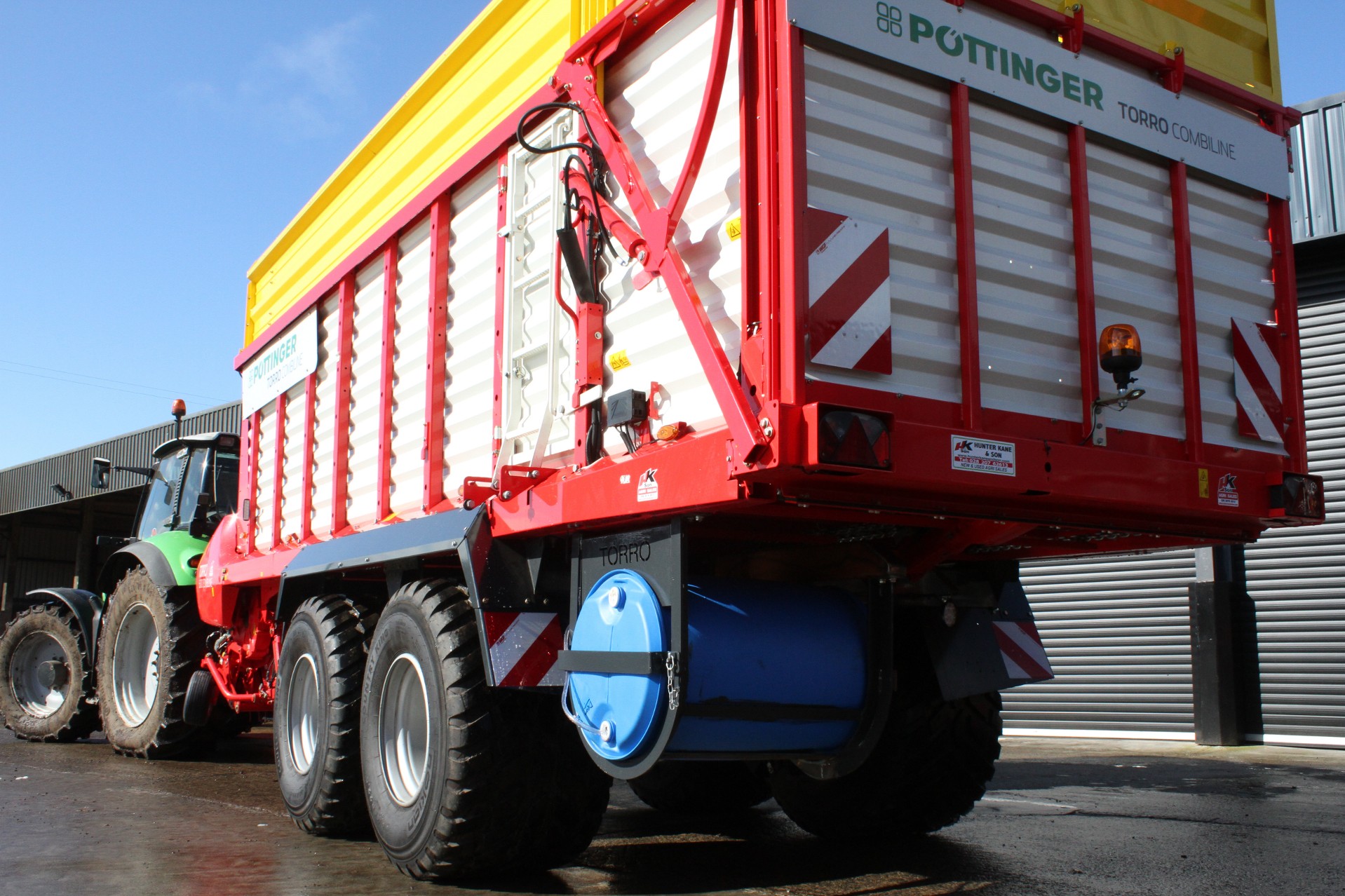Farmers and contractors across Northern Ireland are confirming that the return to changeable weather conditions has brought first cut silage making to a halt. But it’s not all bad news, as the rain will help bulk out those crops on which fertiliser was spread quite late in the season.
The break in harvesting will also allow farmers and contractors to get slurry out on fields that were cut earlier in May.
“Ground conditions are excellent, which means that we can get slurry out for those clients, who went for a very early cut this year,” commented Lisnaskea contractor Barry Reid.
“Provita’s Tommy Armstrong told Farming Life that silage made up to this point has been of excellent quality.
“In a number of cases, we measured grass sugar levels prior to cutting and they were exceptionally high. This will bode well for the quality of the silage made from these swards.
“In addition grass nitrogen levels have been well below those which would lead to excessive ammonia build ups in the ensiled crops.
“Grass yields have been in the 5t to 7t per acre.
“A couple of general trends have become apparent, in relation to the 2016 silage making season.
“In the first instance, wilting light crops for 24 hours during very dry weather is not necessary. Producers aiming to make silages with dry matters between 25% and 30% were able to achieve this in less time.
Armstrong also confirmed the benefits to be accrued from grass testing, pre-harvest, and the fact that increasing numbers of farmers are opting to use this important management tool, where silage making is concerned.
“The results of the test are available within 24 hours of a grass sample being submitted to AFBI,” he added.
“It is a very simple way of determining sugar and forage nitrogen levels. This is a service that we make freely available to all our Advance+ inoculant customers.”
Looking ahead, the Provita representative indicated that the recent rain will boost both grass growth rates and crops uptake of nitrogen from the soil.”
“The BBC weather forecast is predicting showers for the next 10 days, however heading is related to day length so hopefully there may be gaps where silage can be cut as ground conditions are still good on most farms” he said.
“However, under these circumstances, I would strongly urge that a grass test be carried out on all crops prior to mowing.
“The good news is that the unique strains in Advance+ will give a good fermentation even with low sugar levels, reduce the silage ammonia levels by a third and double the stability period of silage at feed out.”
Armstrong confirmed the growing demand for Advance+ applicators this year.
“We are happy to work with farmers and contractors when it comes to both sourcing an applicator and having it fitted,” he said.
“Advance+ works equally well in the context of both clamp and baled silage scenarios.”
